
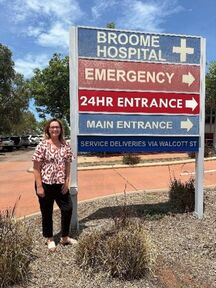 Dr Eileen Boyle at Broome Health Campus
Dr Eileen Boyle at Broome Health Campus
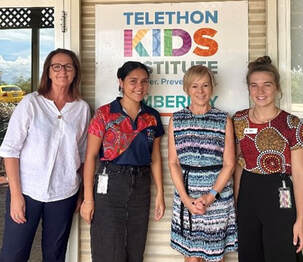 L-R Dr Eileen Boyle, Mikayla Garstone, Professor Fenella Gill, Claudia Walton-McDermott.
L-R Dr Eileen Boyle, Mikayla Garstone, Professor Fenella Gill, Claudia Walton-McDermott.
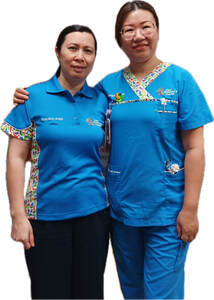 Dr Jo Zhou, Lisa Ma, and Martina Barnwell (not pictured) have been involved in data collection.
Dr Jo Zhou, Lisa Ma, and Martina Barnwell (not pictured) have been involved in data collection.
 Maggie Harrigan
Maggie Harrigan
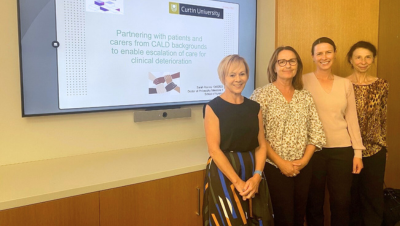 Professor Fenella Gill, Dr Eileen Boyle, Sarah Rooney and Katarina Barjaktarevic.
Professor Fenella Gill, Dr Eileen Boyle, Sarah Rooney and Katarina Barjaktarevic.
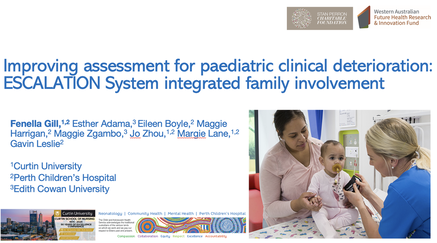
|
Home
About Contact |
|
